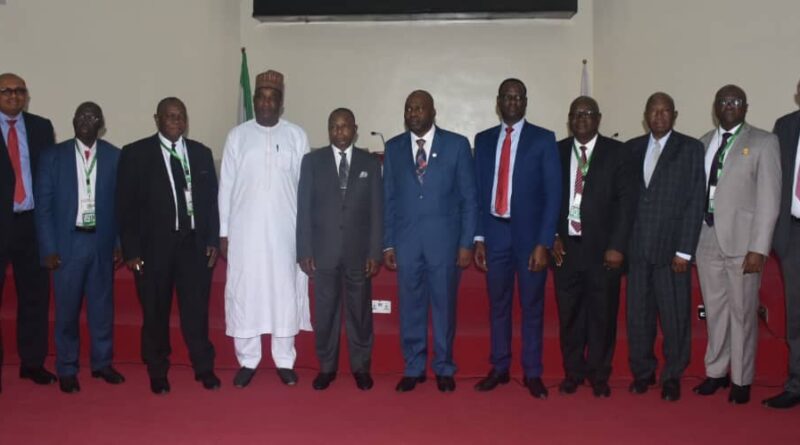Leaving the battle against corruption to the FG alone is incorrect—AGF.
According to Prince Lateef Fagbemi, Attorney-General of the Federation and Minister of Justice, the fight against corruption should not be limited to the Federal Government and its institutions.
Fagbemi proposed that states participate in the battle against corruption.
He made the remarks during a one-day hybrid sensitization session on revised guidelines for government parties negotiating and drafting contracts and agreements in order to prevent corruption and illicit financial flows and achieve sustainable development.
The session was held on Tuesday in Abuja by the Independent Corrupt Practises and Other Related Offences Commission (ICPC).
“I’d want to point out that the issue of corruption, as well as the propensity to restrict the struggle to the federal government alone, are incorrect. Contracts are not solely awarded at the federal level.
“States are involved as well.” “There ought to be a way to get some of these states on board,” he added.
Fagbemi stated that the updated guidelines initiated by the commission were primarily needed.
He remarked that some of the corrupt practises being combated in the country were committed at the state level, although international law rarely recognised them (the states).
“The document that we are presenting to the public today will be useful not only to the federal government, but also to state governments.”
“If you look at it, the states are unknown in international law.” The federal government will advocate for the states.
“Some of these atrocities are also committed at the state level, and the Federal Government is summoned to account.”
“My advice is that there should be another way of bringing the states on board to appreciate the need for your efforts,” he stated.
He expressed the federal government’s support for the ICPC’s and other government agencies’ activities aimed at increasing openness, efficiency, and preventing corruption.
“The revised guidelines’ concept, which is part of the Federal Government’s ministerial deliverables on improved guidelines for effective service delivery, should deter corruption in the negotiation and execution of government contracts.”
“As a result, the Federal Ministry of Justice is committed to supporting MDA initiatives aimed at increasing transparency, efficiency, and preventing corruption.”
“At the ministerial level, the ministry has developed policy documents and specific mechanisms to ensure transparency and reduce incidents of bad judgement resulting from poor drafting of federal government contracts with malicious intent against the country and its citizens.”
“Specifically as it relates to contracts within the Federal Executive Council’s thresholds,” he remarked.
Prof. Bolaji Owasanoye, SAN, Chairman of the ICPC, mentioned in his welcoming address some of the ways contracts were used to defraud the nation through capital flight and other types of illegal financial flows.
He cited a lack of procedures for periodic assessment of long-term contracts, licence grants, and waivers as examples.
He went on to say that the choice of laws and the location of arbitration have frequently worked against the nation, hence the need for guidelines.
In his paper titled “Avoiding Tax Defaults and Capital Flights in Commercial Agreements,” Mr. Taiwo Oyedele, Chairman of the Presidential Committee on Fiscal Policy and Tax Reforms, suggested a way forward to addressing some of the issues encouraging capital flights in commercial agreements.
Oyedele suggested standardising the approach by using templates and authorised checklists that were reviewed and updated on a regular basis.
Other options he proposed included the involvement of professionals and subject matter experts, tax impact assessment and simulation, caps and sunset provisions, and so on.
Others, he said, were assessing local regulations and compliance with the counterparty’s authority, utilising clauses in agreements to protect national interests, and using local content in project execution to restrict capital flight.
The event included a panel discussion on negotiating contracts in the oil and gas, solid minerals, trade and investment, and environmental standards sectors.




